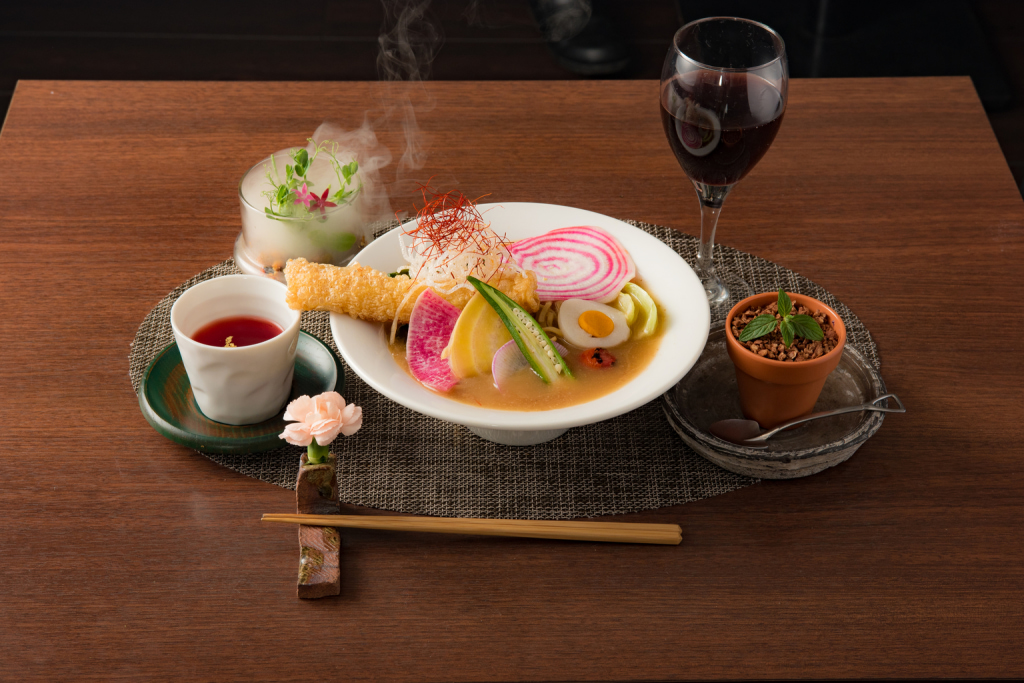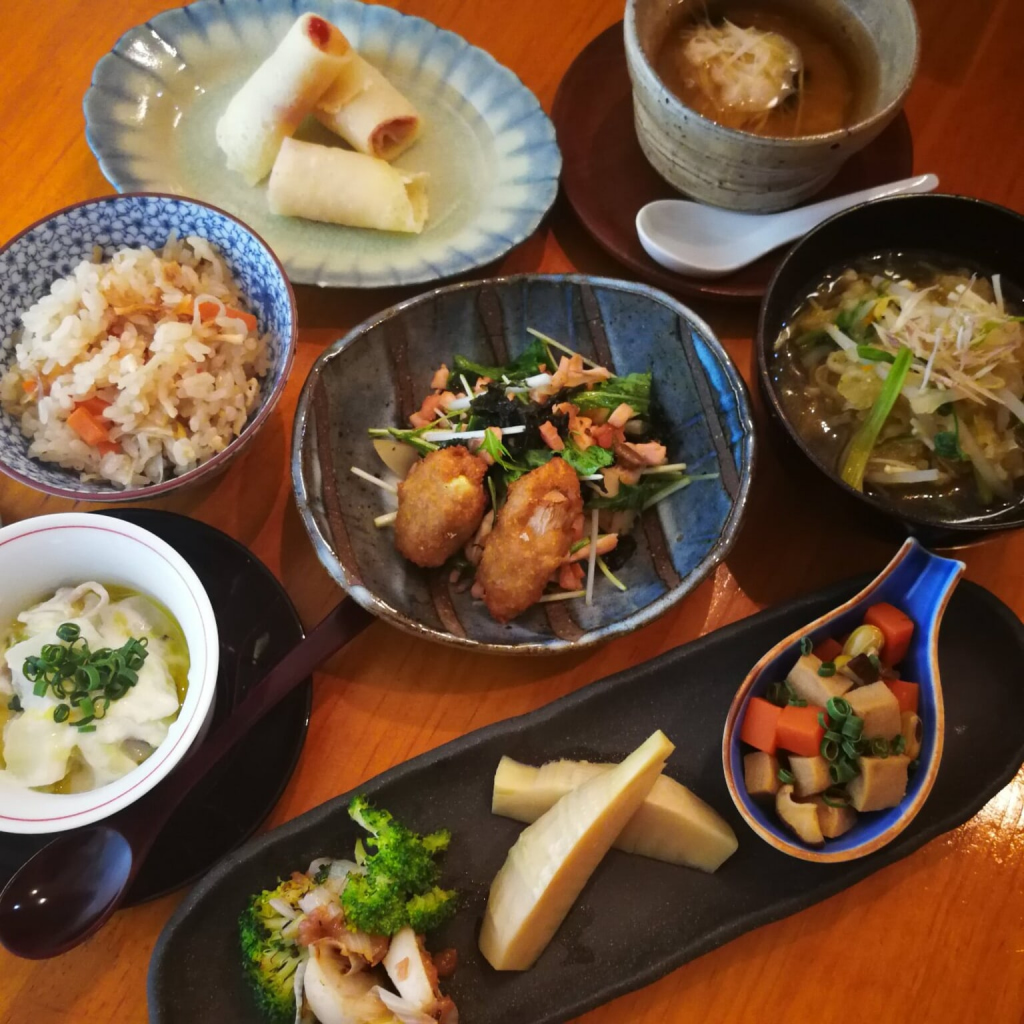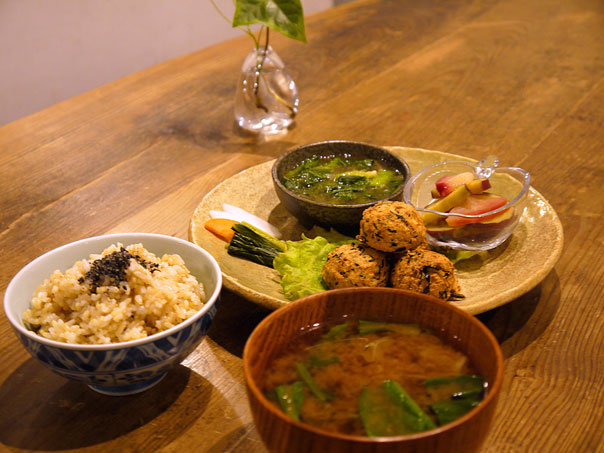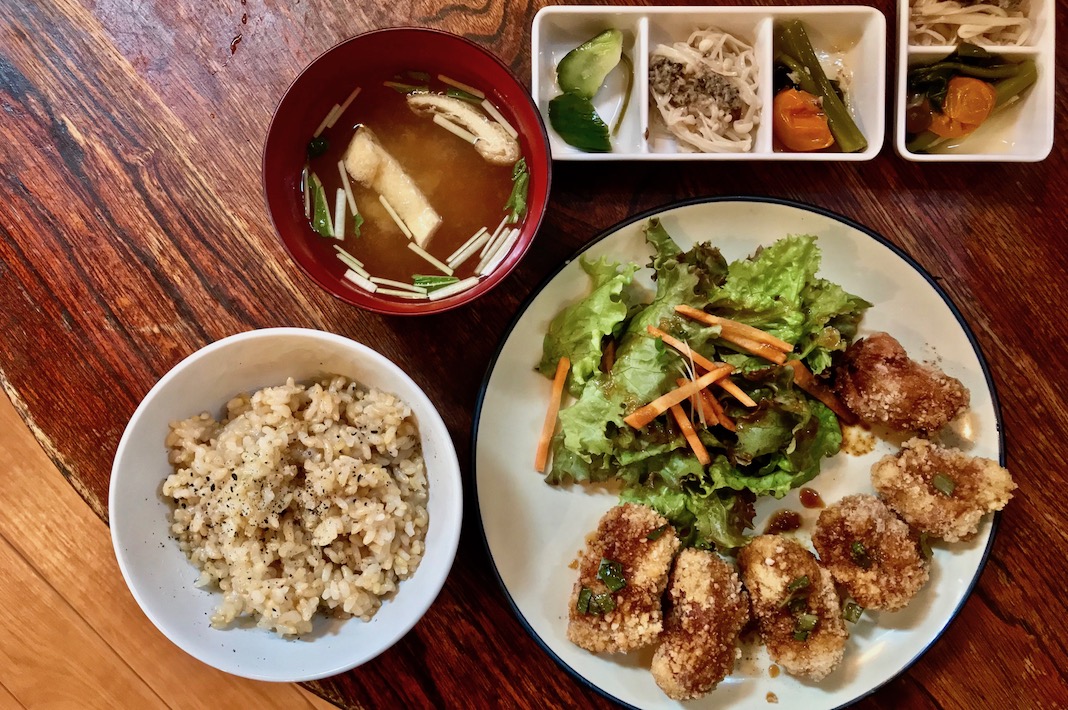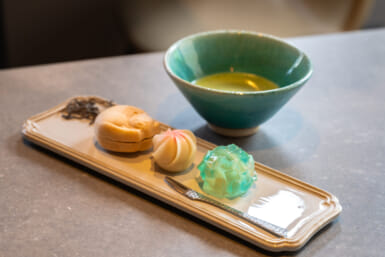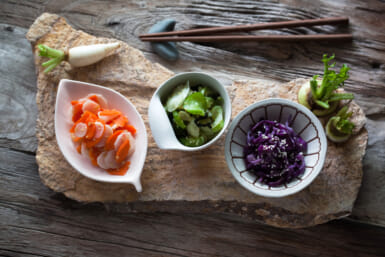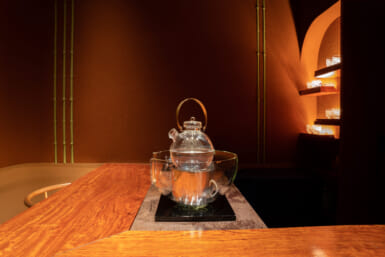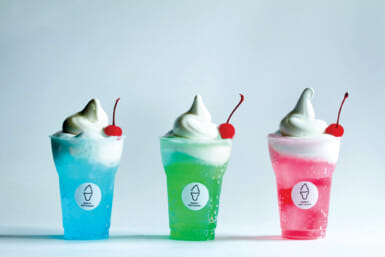Washoku is the name for traditional Japanese food in Japan. Over the past five years, in preparation for the Olympics, many restaurants began to serve western vegetarian options.
Yet many westerners in Japan want to eat like the Japanese do. After-all, veggie burgers, falafel and curry are plentiful back home. With this in mind, we rounded up the best vegan and vegetarian restaurants to try some washoku dishes in Tokyo.
What is Vegan Washoku?
Foods ranging from tempura to Japanese style fried chicken to kaiseki all count under the washoku umbrella.
Japanese food is traditionally dashi-based. This means it can be difficult to find traditional washoku that is completely vegan without worrying about the bonito fish stock (dashi) that is probably inside. Restaurants that serve vegan washoku normally substitute the fish dashi for shiitake mushroom or konbu dashi instead.
The Best Vegan Washoku in Tokyo
Washoku is known for its focus on balance. This includes a main, soup (usually miso), rice and salad. We picked restaurants that are worth a trip, in a range of different washoku styles, from vegan sushi to vegan eel and vegan Japanese fried chicken.
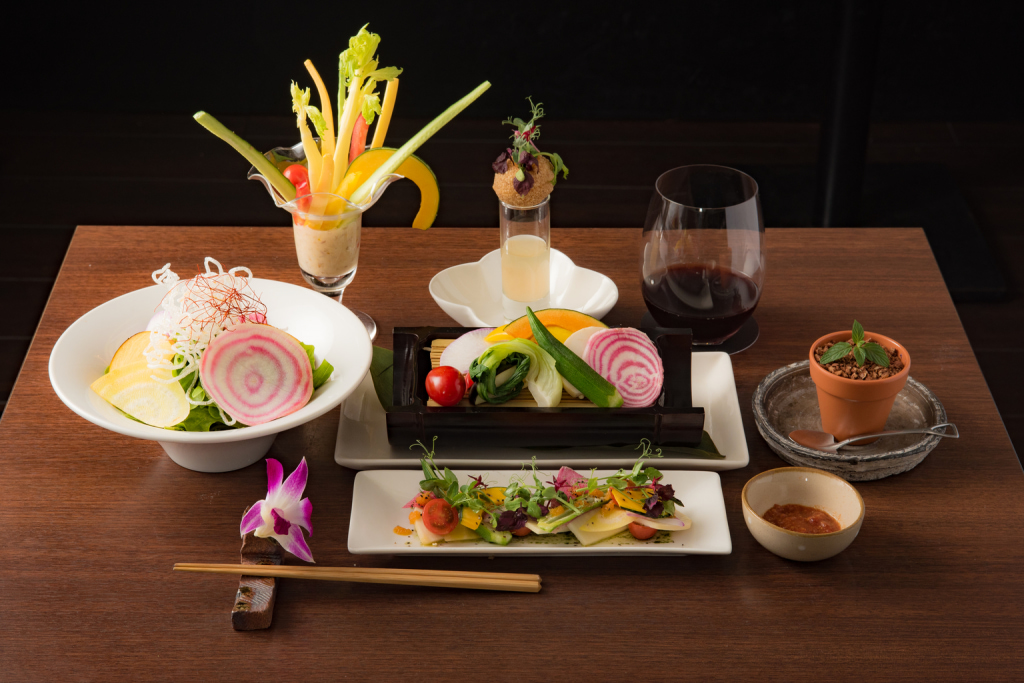
Saido Dinner Course ¥5280-
1. Saido, Jiyugaoka
Since chef Katsumi Kusumoto opened his vegan-only washoku restaurant, Saido in a quiet backstreet in the trendy Tokyo suburb of Jiyugaoka in 2018, he has been inundated with customers. Saido is known for its cuisine theatrics and contemporary vegan versions of traditional washoku. It earned the accolade of the number one vegan restaurant in the world on vegan food app, Happy Cow in 2019 and hasn’t looked back since.
It features a range of menus. The lunch set comes with salad, soup, dessert, a drink and a main course, selected from one of three varieties including eel and yakisoba. There are also dinner courses. Without giving too much away, the theatrics involve dry ice and visual gags, each dish is carefully designed to delight its customers in both looks and taste.
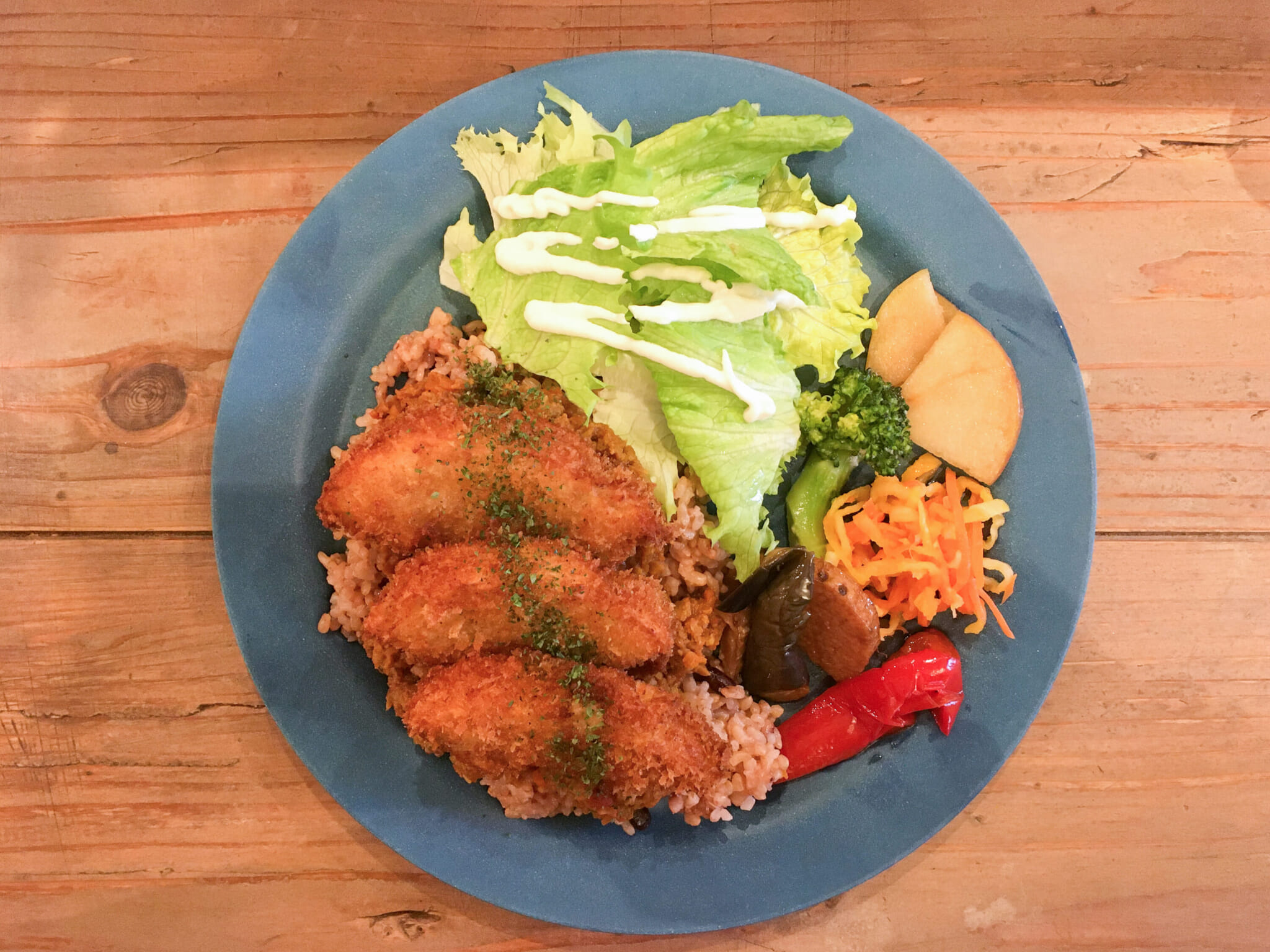
2. Rect Sand Café, Koenji
Contrary to its name, Rect Sand Café doesn’t actually sell Japanese sandwiches. The restaurant started over 10 years ago as a sandwich shop, and gradually morphed into a standalone vegan restaurant, selling bento boxes, snacks delicious, healthy lunches.
The owner has a personal policy against using fake meats, and instead guests are treated to innovative ways of experiencing Japanese classics. Wheat gluten is breaded in katsu style, dried tofu becomes keema curry and 10 different vegetables for its signature baked spring rolls.
3. Monks Foods, Kichijoji
Monks Foods (named after jazz great, Thelonious Monk), was established in 1983 by an organic-food and jazz enthusiast. As a result, visitors to the sparse restaurant in the bustling west Tokyo suburb are treated to a relaxed dining experience with jazz.
While the restaurant is not entirely vegan, the staff are knowledgable regarding dietary needs. The lunch set (which changes depending on the season), often includes Japanese simmered kabocha, shiitake and konjac, allowing guests to savor the vegetables’ umami taste.
All food is organic with options for non-veggies, too. This makes Monks Foods a great place to go for a relaxed evening, with omnivore friends in search of umami.
4. Minoya, Asakusa
Minoya is a tiny but well-known Japanese kaiseki restaurant. Kaiseki means course meal and refers to a series of small plates which are designed to encapsulate the flavors of each ingredient used, mainly seasonal vegetables. There are usually around 10 dishes per course.
Each evening the restaurant hosts a kaiseki course, which changes each month. Examples of dishes include: ginkgo nuts wrapped in eringi mushroom and steamed lily bulb with plum and yuzu.
5. Mominoki House, Harajuku
Stepping into Mominoki House in Harajuku is like stepping into a house in Moomin Valley. Higgledy wooden embellishments adorn the walls and the floor has different levels. There’s also a mini stage area, a curtained date space and a piano.
Don’t let the interior fool you, though. The food at Mominoki House is carefully made and well-balanced in a particularly Japanese way (although they do serve pasta). The restaurant was one of the first in Tokyo to take on the organic concept and run with it, thanks to its chef Eichiro Yamada, who studied in the US. Dishes at Mominoki House range from vegan sushi and tofu steak to vegan fried chicken. All come with miso soup and rice.
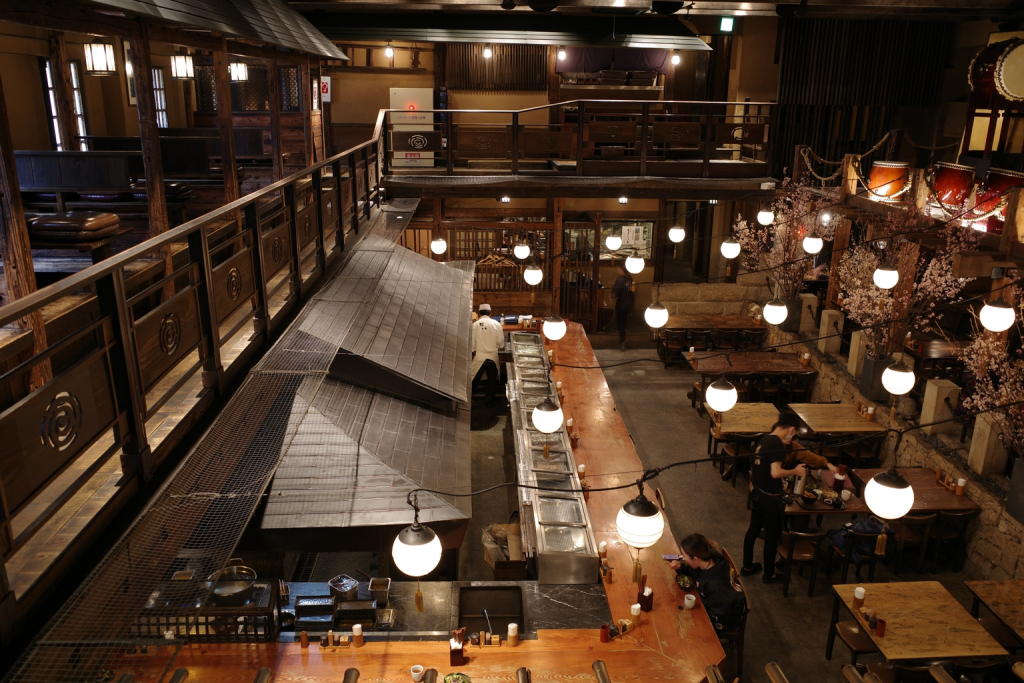
Gonpachi, image_vulture / Shutterstock.com
6. Gonpachi, Roppongi
When it comes to entertaining overseas guests, Gonpachi in Roppongi is a fail-safe option as it has both vegan and non-vegan options. It’s best-known for being the Japanese restaurant in the movie Kill Bill.
Its star-studded credentials overshadow the fact that it is a genuinely good restaurant, especially for those visiting in groups with various dietary requirements. For vegans, the restaurant offers plenty of vegan sushi and tempura options, along with sides such as tofu and pickles.
7. Nezu no Ya, Nezu
Nezu no Ya is a vegan restaurant and organic food store located close to Nezu Art Gallery. Its owners are very passionate about vegan lifestyle and organic food, happily sharing their knowledge and enthusiasm with guests.
This enthusiasm extends to the food, too. The rice ball and lunch set menus contain classic washoku elements of homemade miso soup, rice and even free tea refills. Other menu items include vegan Japanese curry and cake.
Before heading to Nezu no Ya, it is advisable to check the website. While the shop is open daily except Sundays, the restaurant is sporadically closed on Mondays and Tuesdays as well.
*CLOSED*Nagi Shokudo, Shibuya
Now closed, Nagi Shokudo had a loyal clientele. While it was conveniently located close to Shibuya Station, the restaurant was tucked away from the crowds.
It was loved by locals and tourists alike for its no-frills dining and expansive deli counter, with set menu options and single dishes available. Diners could choose sets with Japanese fried chicken, rice and homemade miso soup through to a deli taster plate, which included over 10 varieties of its fully vegan Japanese deli.

